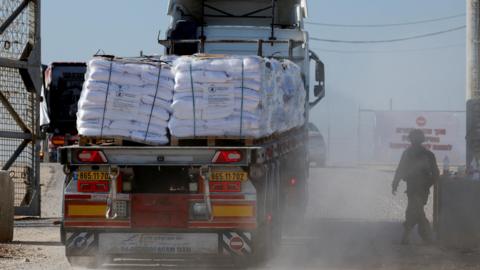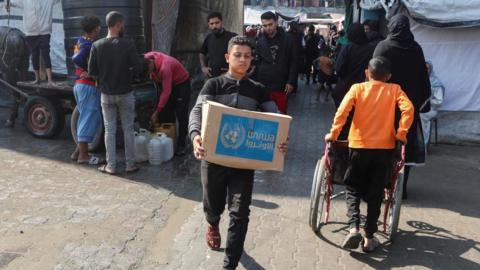Early in the war, as food became increasingly scarce, desperate Gazans were sometimes seen stealing from incoming aid lorries.
Soon, cigarette smuggling became a huge business with gangs holding up convoys at gunpoint after they arrived from Egypt’s Rafah crossing and, after this shut in May, Kerem Shalom.
A cigarette packet can sell for exorbitant amounts in Gaza: while a packet of 20 cost about 20 shekels ($5.40) before the war, now a single cigarette can cost 180 shekels ($48.60).
Cigarettes are being found within the frames of wooden aid pallets and inside closed food cans, indicating that there is a regional racket involved in smuggling.
For the past six weeks, the Israeli authorities have banned commercial imports, arguing that these benefit Hamas.
This has added to the decrease in the supply of food, which is in turn driving the rise in armed looting.
Stolen goods, from flour to winter shelters, sent as international donations and meant to be given as free handouts to needy people can only be bought at extortionate prices on Gaza’s black market.
Meanwhile, months’ worth of donated supplies are being held back in Egypt due to hold-ups in aid delivery.
In recent days, local media reports are suggesting that Israel is now studying the option of delivering aid to Gaza by means of a private, armed American security contractor.
While nothing has yet been officially announced, aid workers are worried.
Georgios Petropoulos of Ocha questions which donor countries would want supplies distributed this way.
“How safe is it really going to be?” he asks: “I think it will be a vector for more bloodshed and violence.”

